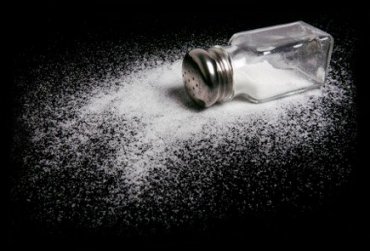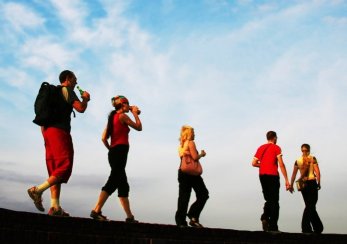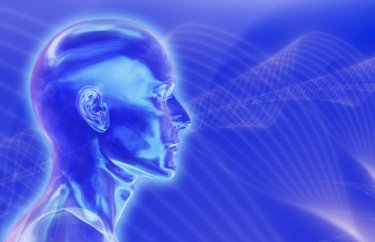 |
Tuesday, 1 May 2012
10 Keys to Happier Living
Mood:
 happy
Topic: Happiness happy
Topic: Happiness

Action for Happiness has developed the 10 Keys to Happier Living based on a review of the latest scientific research relating to happiness. Everyone’s path to happiness is different, but the research suggests these Ten Keys consistently tend to have a positive impact on people’s overall happiness and well-being. The first five (GREAT) relate to how we interact with the outside world in our daily activities*. The second five (DREAM) come more from inside us and depend on our attitude to life.
1. GIVING: Do things for others Caring about others is fundamental to our happiness. Helping other people is not only good for them and a great thing to do, it also makes us happier and healthier too. Giving also creates stronger connections between people and helps to build a happier society for everyone. And it's not all about money - we can also give our time, ideas and energy. So if you want to feel good, do good!
Q: What do you do to help others?
2. RELATING: Connect with people Relationships are the most important overall contributor to happiness. People with strong and broad social relationships are happier, healthier and live longer. Close relationships with family and friends provide love, meaning, support and increase our feelings of self worth. Broader networks bring a sense of belonging. So taking action to strengthen our relationships and create new connections is essential for happiness.
Q: Who matters most to you?
3. EXERCISING: Take care of your body Our body and our mind are connected. Being active makes us happier as well as being good for our physical health. It instantly improves our mood and can even lift us out of a depression. We don't all need to run marathons - there are simple things we can all do to be more active each day. We can also boost our well-being by unplugging from technology, getting outside and making sure we get enough sleep!
Q: How do you stay active and healthy?
4. APPRECIATING: Notice the world around Ever felt there must be more to life? Well good news, there is! And it's right here in front of us. We just need to stop and take notice. Learning to be more mindful and aware can do wonders for our well-being in all areas of life - like our walk to work, the way we eat or our relationships. It helps us get in tune with our feelings and stops us dwelling on the past or worrying about the future - so we get more out of the day-to-day.
Q: When do you stop and take notice?
5. TRYING OUT: Keep learning new things Learning affects our well-being in lots of positive ways. It exposes us to new ideas and helps us stay curious and engaged. It also gives us a sense of accomplishment and helps boost our self-confidence and resilience. There are many ways to learn new things - not just through formal qualifications. We can share a skill with friends, join a club, learn to sing, play a new sport and so much more.
Q: What new things have you tried recently?
6. DIRECTION: Have goals to look forward to Feeling good about the future is important for our happiness. We all need goals to motivate us and these need to be challenging enough to excite us, but also achievable. If we try to attempt the impossible this brings unnecessary stress. Choosing ambitious but realistic goals gives our lives direction and brings a sense of accomplishment and satisfaction when we achieve them.
Q: What are your most important goals?
7. RESILIENCE: Find ways to bounce back All of us have times of stress, loss, failure or trauma in our lives. But how we respond to these has a big impact on our well-being. We often cannot choose what happens to us, but we can choose our own attitude to what happens. In practice it's not always easy, but one of the most exciting findings from recent research is that resilience, like many other life skills, can be learned.
Q: How do you bounce back in tough times?
8. EMOTION: Take a positive approach Positive emotions - like joy, gratitude, contentment, inspiration, and pride - are not just great at the time. Recent research shows that regularly experiencing them creates an 'upward spiral', helping to build our resources. So although we need to be realistic about life's ups and downs, it helps to focus on the good aspects of any situation - the glass half full rather than the glass half empty.
Q: What are you feeling good about?
9. ACCEPTANCE: Be comfortable with who you are No-one's perfect. But so often we compare our insides to other people's outsides. Dwelling on our flaws - what we're not rather than what we've got - makes it much harder to be happy. Learning to accept ourselves, warts and all, and being kinder to ourselves when things go wrong, increases our enjoyment of life, our resilience and our well-being. It also helps us accept others as they are.
Q: What is the real you like?
10. MEANING: Be part of something bigger People who have meaning and purpose in their lives are happier, feel more in control and get more out of what they do. They also experience less stress, anxiety and depression. But where do we find 'meaning and purpose'? It might be our religious faith, being a parent or doing a job that makes a difference. The answers vary for each of us but they all involve being connected to something bigger than ourselves.
Q: What gives your life meaning?
* The first five keys are based on the Five Ways to Wellbeing developed by nef as part of the UK Government's Foresight Project on Mental Capital. by ActionforHappiness.org Article Source - dailygood.org
Posted by Neil Bartlett DHyp M.A.E.P.H
at 01:01 MEST
Updated: Tuesday, 1 May 2012 10:53 MEST
Monday, 30 April 2012
Dad talks to his dead daughter after developing paranormal detection devices
Mood:
 chatty
Topic: Paranormal chatty
Topic: Paranormal
A grief-stricken electrical engineer believes he has found a way to communicate with his dead daughter eight years after her death. Using his expertise to design and build a series of electromagnetic detection devices, Gary Galka claims to have even recorded his eldest daughter Melissa saying, 'Hi Daddy, I love you.' Devastated by his girl's death in a car accident on her way home in 2004 at the age of 17, Gary and his family claim they started to experience unexplained phenomena at their Connecticut home days after the fatal accident, according to the Hartford Courant. Full Story from dailymail.co.uk
Posted by Neil Bartlett DHyp M.A.E.P.H
at 01:01 MEST
Updated: Monday, 30 April 2012 01:09 MEST
Sunday, 29 April 2012
The Power of Failure.....Best Motivation Video Ever
Mood:
 happy
Topic: Inspirational happy
Topic: Inspirational
Brooding over your failures? No one rides unbridled success all the time. This film provides compelling examples of strong people who, undaunted by their failures, drove themselves to the pinnacles of success. This film reminds us: to fail is to live.
Posted by Neil Bartlett DHyp M.A.E.P.H
at 01:01 MEST
Updated: Sunday, 29 April 2012 02:14 MEST
Saturday, 28 April 2012
The Benefits of Daydreaming
Mood:
 bright
Topic: Dreams bright
Topic: Dreams

Does your mind wander? During a class or meeting, do you find yourself staring out the window and thinking about what you’ll do tomorrow or next week? As a child, were you constantly reminded by teachers to stop daydreaming? Well, psychological research is beginning to reveal that daydreaming is a strong indicator of an active and well-equipped brain. Tell that to your third-grade teacher. A new study, published in Psychological Science by researchers from the University of Wisconsin and the Max Planck Institute for Human Cognitive and Brain Science, suggests that a wandering mind correlates with higher degrees of what is referred to as working memory. Cognitive scientists define this type of memory as the brain’s ability to retain and recall information in the face of distractions. Full Story from smithsonianmag.com
Posted by Neil Bartlett DHyp M.A.E.P.H
at 01:01 MEST
Updated: Saturday, 28 April 2012 01:18 MEST
Friday, 27 April 2012
Salt......friend or foe?
Mood:
 happy
Topic: Health happy
Topic: Health

For many years we have been told by medical experts and nutritionists alike that it is crucial for our health to cut down on sodium as much as possible. Statistical data seems to show that a high dietary salt intake (primarily consisting in sodium chloride) can put people at risk of cardiovascular complications. Consequently, salt has been vilified to such extent in the media that may people strive to remove it from their diets completely. But is wiping salt out of the menu really a wise choice? According to a recent study published in the Journal of the American Medical Association, not exactly. To understand both why salt is healthy and why it has the potential to be dangerous, let's look at what it can do for us. The primary biological role of sodium is to regulate blood volume and blood pressure by maintaining adequate body fluid levels. When the kidneys detect too little sodium levels in the body, they decrease sodium excretion. But when there is too much sodium, an antidiuretic hormone kicks in and causes the body to retain water. The kidneys will then try to gradually release excess sodium and water through urine, thus bringing the body's fluid and sodium levels back within normal ranges. Water and salts are also lost through excessive perspiration, associated with hot climates and physical effort. This can severely offset the body's internal regulating mechanisms, and adequate rehydration is advised as soon as possible. In normal conditions however, sodium regulation is left almost entirely up to the kidneys. Medical experts usually warn us that if for some reason, the kidneys are unable to excrete excess sodium, the increased blood volume will exert extra pressure on blood vessels and make the heart work harder. But now scientists say that too little sodium is just as bad. On the one hand, sodium deficiency can cause a range of problems, including headaches, nausea, fatigue and muscle cramps. On the other hand, commercially available foods contain large amounts of hidden salt which makes it difficult for people on a traditional diet to control their sodium intake. The research of professors Martin J. O'Donnell and Salim Yusuf of McMaster University in Ontario, Canada now reveals that if we have very low levels of sodium in urine, we are at risk of cardiovascular death and congestive heart failure. The study looked at 28,880 people, with an elevated risk of cardiovascular disease, over a seven-year period. The scientists explained that "clarifying the optimal daily intake of sodium is particularly important in patients with established cardiovascular disease, where it has been inadequately studied." However, there is no scientific consensus as of yet regarding optimal salt intake, since body sodium levels also depend on how much an individual sweats. "As a general rule, if people are adding salt to their diet they are taking in too much and they are on the higher end of our spectrum. The first thing people need to do is stop adding salt," said O'Donnell. Fortunately, certain foods are naturally rich in sodium and can help balance a diet without added salts. Seaweed, green leafy vegetables and tuberous vegetables are natural sources of sodium, as well as other essential salts, such as magnesium and potassium. Sources for this article include: http://fhs.mcmaster.ca/main/news/news_2011/sodium_intake_study.html http://www.medicalnewstoday.com/articles/238164.php http://www.thestar.com/news/article/1091079 http://www.mayoclinic.com/health/sodium/NU00284 About the author: Raw Michelle is a natural health blogger and researcher, sharing her passions with others, using the Internet as her medium. She discusses topics in a straight forward way in hopes to help people from all walks of life achieve optimal health and well-being. She has authored and published hundreds of articles on topics such as the raw food diet and green living in general. In 2010, Michelle created RawFoodHealthWatch.com, to share with people her approach to the raw food diet and detoxification. Article Source - naturalnews.com
Posted by Neil Bartlett DHyp M.A.E.P.H
at 01:01 MEST
Updated: Friday, 27 April 2012 01:09 MEST
Thursday, 26 April 2012
Neolithic acoustics of Stonehenge revealed by academics
Mood:
 loud
Topic: Archaeology loud
Topic: Archaeology

A team of academics have revealed the "sonic experience" that early visitors to Stonehenge would have heard. Scholars from the Universities of Salford, Huddersfield and Bristol used an American replica of the monument to investigate its audio history. Salford's Dr Bruno Fazenda said they had found the site reacted to sound "in a way that would have been noticeable to the Neolithic man". He said the research would allow a "more holistic" view of its past. The acoustic experiments could not be carried out at Stonehenge, as the derelict state of the site meant only a "few weak echoes and no noticeable reverberation" could be studied. As a result, the team used a full-sized concrete reconstruction of it in Maryhill, America, which was built in 1929 as a memorial to WWI soldiers. In February, scientist Steven Waller published a paper suggesting the design of Stonehenge could have been inspired by music. Full Story from BBC
Posted by Neil Bartlett DHyp M.A.E.P.H
at 01:01 MEST
Updated: Thursday, 26 April 2012 02:08 MEST
Wednesday, 25 April 2012
Positive Feelings May Help Protect Cardiovascular Health
Mood:
 happy
Topic: Positive Thinking happy
Topic: Positive Thinking

Over the last few decades numerous studies have shown negative states, such as depression, anger, anxiety, and hostility, to be detrimental to cardiovascular health. Less is known about how positive psychological characteristics are related to heart health. In the first and largest systematic review on this topic to date, Harvard School of Public Health (HSPH) researchers found that positive psychological well-being appears to reduce the risk of heart attacks, strokes and other cardiovascular events. The study was published online April 17, 2012 in Psychological Bulletin. The American Heart Association reports more than 2,200 Americans die of cardiovascular disease (CVD) each day, an average of one death every 39 seconds. Stroke accounts for about one of every 18 U.S. deaths. Full Story from sciencedaily.com
Posted by Neil Bartlett DHyp M.A.E.P.H
at 01:01 MEST
Updated: Wednesday, 25 April 2012 01:40 MEST
Tuesday, 24 April 2012
Walking could be a useful tool in treating depression
Mood:
 chatty
Topic: Alternative Health chatty
Topic: Alternative Health

Something as simple as going for a brisk stroll could play an important role in fighting depression, according to researchers in Scotland. Vigorous exercise has already been shown to alleviate symptoms of depression, but the effect of less strenuous activities was unclear. A study in the journal Mental Health and Physical Activity showed walking had a "large effect" on depression. One in 10 people may have depression at some point in their lives. The condition can be treated with drugs, but exercise is commonly prescribed by doctors for mild symptoms. Full Story from BBC
Posted by Neil Bartlett DHyp M.A.E.P.H
at 01:01 MEST
Updated: Tuesday, 24 April 2012 01:43 MEST
Monday, 23 April 2012
Henry, an iPod, and the Alchemy of Music
Mood:
 bright
Topic: Inspirational bright
Topic: Inspirational
Alive Inside, a documentary premiering next week in New York, investigates a social worker's attempt to engage seniors with dementia and Alzheimer's at a nursing home. When he discovers how well it works, he brings in neurologist Oliver Sacks, and the two embark on an experiment to see music's impact on this population. The video above has become a viral hit as more people discover it, and it's no surprise -- people's connection with music, particularly music from their younger years, elicits strong emotions, and some researchers have even suggested it as a necessity for people. Ray Mueller, a member of the Shumei Arts Council of America’s Advisory Board, told Psychology Suite 101, “Research has located specific areas of mental activity linked to emotional responses to music. It seems music is a human need and the brain is able to act as a function to satisfy that need.” For older populations, music has been associated with everything from helping uncover memories in patients with Alzheimer's to reducing falls during exercise. The video is also affiliated with Music & Memory, an organization dedicated to helping seniors connect to music, including collecting used iPods for donation. Article Source - dailygood.org
Posted by Neil Bartlett DHyp M.A.E.P.H
at 01:01 MEST
Updated: Monday, 23 April 2012 01:09 MEST
Sunday, 22 April 2012
Mystery of Human Consciousness Illuminated
Mood:
 lyrical
Topic: Hypnosis & Psychology lyrical
Topic: Hypnosis & Psychology

Awakening from anesthesia is often associated with an initial phase of delirious struggle before the full restoration of awareness and orientation to one's surroundings. Scientists now know why this may occur: primitive consciousness emerges first. Using brain imaging techniques in healthy volunteers, a team of scientists led by Adjunct Professor Harry Scheinin, M.D. from the University of Turku, Turku, Finland in collaboration with investigators from the University of California, Irvine, USA, have now imaged the process of returning consciousness after general anesthesia. The emergence of consciousness was found to be associated with activations of deep, primitive brain structures rather than the evolutionary younger neocortex. These results may represent an important step forward in the scientific explanation of human consciousness. The study was part of the Research Programme on Neuroscience by the Academy of Finland. "We expected to see the outer bits of brain, the cerebral cortex (often thought to be the seat of higher human consciousness), would turn back on when consciousness was restored following anesthesia. Surprisingly, that is not what the images showed us. Full Story from sciencedaily.com
Posted by Neil Bartlett DHyp M.A.E.P.H
at 01:01 MEST
Updated: Sunday, 22 April 2012 02:12 MEST
Newer | Latest | Older
|
|








